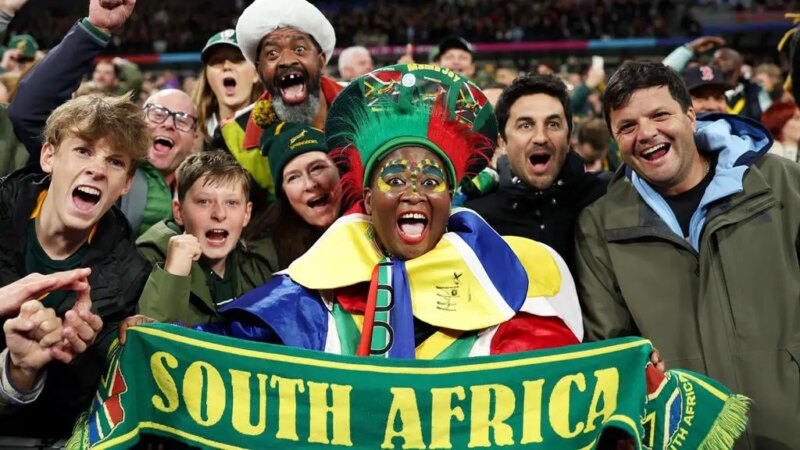South Africans have always loved competition. The strategy and performance of football, rugby, and cricket are part of everyday life. Many fans who live for their teams are now applying that same mindset to managing money. A growing number have discovered a digital system known as copy trading, which lets beginners automatically follow and duplicate the strategies of professional traders through online platforms.
The excitement brings back memories for 26-year-old Orlando Pirates supporter Sibusiso Dlamini. “It works like fantasy football,” he said, smiling. “You earn money instead of points. You follow people who know what they’re doing. If they win, you win. If they lose, you lose together.”
He laughed after saying it, both serious and curious. People are drawn to the mix of expert learning, statistics, and strategy in the same way they follow sport. The experience blends competition, mentorship, and the thrill of a smart plan paying off.
Digital-trading apps have surged across Africa in the past few years. Young South Africans in their twenties and thirties now turn to fintech platforms instead of traditional savings accounts. With youth unemployment above 45 percent, the search for new ways to earn has become a national obsession. Social media feeds overflow with screenshots of trading wins and motivational quotes — though many show exaggerated or fake success stories.
Modern copy-trading platforms market themselves as easy and social, far from the paper-heavy world of old-style brokers. Users can view leaderboards, check trader histories, and select investors to follow. Once connected, every trade is mirrored automatically. Some traders attract thousands of followers who copy their every move — a digital version of having fans in the stands.
The excitement is real, but so is the risk. South Africa’s Financial Sector Conduct Authority (FSCA) has issued several official warnings since 2023 about unregulated copy-trading platforms operating from abroad. “People must understand this isn’t gambling,” said Thandi Ncube, a Johannesburg financial educator. “You can lose money just as fast as you make it.”
Read Also: Supercomputer Predicts 2025–26 EPL Table After Arsenal, Liverpool Drop Points
Despite the alerts, interest keeps growing. On TikTok, the hashtag #CopyTradingSA mixes football humour with trading tips. One viral clip compares a trader’s profit ratio to Kaizer Chiefs’ goal stats, while comments debate forex pairs and leverage alongside Premier League memes.
For many fans-turned-traders, sport and markets teach the same lessons. They’ve learned patience and discipline from watching their teams play. “You can’t win every match,” said Grant Moeketsi, a 31-year-old amateur goalkeeper from Johannesburg who began trading during lockdown. “It’s about consistency — same with markets.”
Grant discovered trading through a friend. “I didn’t know markets,” he said, “but I understood teamwork. If someone is winning and I can learn from them, why not?”
Some South African fintech startups are experimenting with this overlap. A few sponsor podcasts that combine football chat with simple investment tips. Influencers partner with platforms to explain finance through sports analogies. One online campaign compared risk management to defending a counterattack — keep your formation, or one mistake can cost the game.
For today’s youth, success means independence as much as income. Long-term jobs, pensions, and steady savings feel distant. Digital finance offers immediacy: download an app, deposit a small amount, and start trading within minutes. It’s participation, not observation.
That same energy can cause mistakes. “When emotions take over, people chase wins,” said Mpho Ledwaba, an independent market analyst in Cape Town. “Fans get carried away. Traders do too.”
Mpho believes education is the missing link. Schools teach budgeting but not markets. “Copy trading can be a learning tool,” he said, “but it becomes dangerous when people imitate blindly.”
Some platforms now include demo accounts that let users practice with virtual money before risking real funds. Others team up with local influencers to promote responsible investing. The FSCA runs public-awareness campaigns warning citizens about unlicensed mentorship schemes disguised as trading programs.
Even with risks, optimism remains. South Africa’s digital-finance ecosystem is one of Africa’s fastest-growing. Mobile-phone penetration exceeds 90 percent, and payment apps such as Ozow and SnapScan make transactions simple. Young investors enjoy instant updates, visible progress bars, and dashboards — features that make both sport and trading equally addictive.
In Durban, university student Lerato Mthembu studies her favourite traders like football managers. “I check their stats every morning before class,” she said. “If they keep losing, I switch to another one. It’s just like changing fantasy teams.”
She’s made small profits — enough to pay her data bill and buy a PSL match ticket. “It’s not a big change,” she admitted, “but it feels good to play the game.”
Back in Pretoria, Sibusiso refreshed his trading app. The market was quiet, but he smiled. “Sometimes you win, sometimes you learn,” he said. “Just like football — you follow the pros until you become one.”
He slid his phone into his jacket and looked at the match highlights on the café TV. For him and many others, the thrill of competition no longer ends on the field. It now plays out on digital screens — in charts, stats, and trades that rise and fall like the score of a match still in progress.








